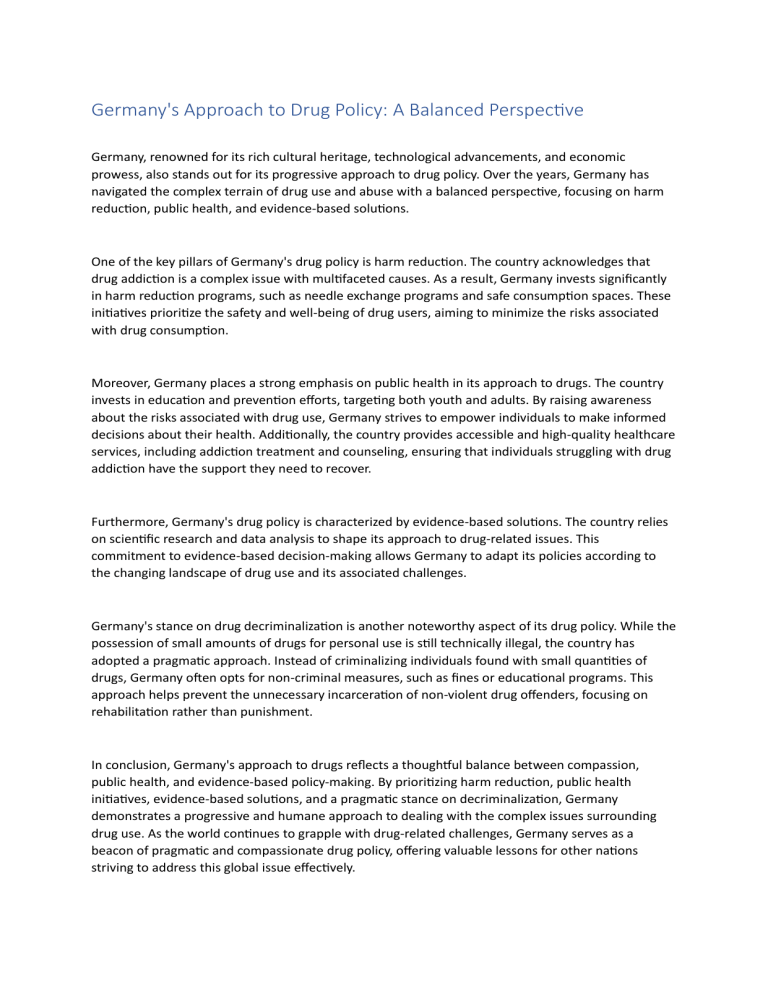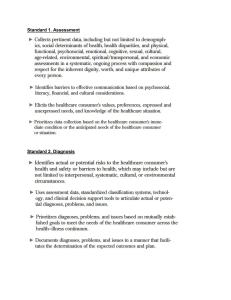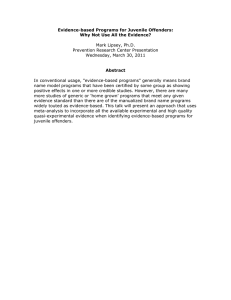
Germany's Approach to Drug Policy: A Balanced Perspective Germany, renowned for its rich cultural heritage, technological advancements, and economic prowess, also stands out for its progressive approach to drug policy. Over the years, Germany has navigated the complex terrain of drug use and abuse with a balanced perspective, focusing on harm reduction, public health, and evidence-based solutions. One of the key pillars of Germany's drug policy is harm reduction. The country acknowledges that drug addiction is a complex issue with multifaceted causes. As a result, Germany invests significantly in harm reduction programs, such as needle exchange programs and safe consumption spaces. These initiatives prioritize the safety and well-being of drug users, aiming to minimize the risks associated with drug consumption. Moreover, Germany places a strong emphasis on public health in its approach to drugs. The country invests in education and prevention efforts, targeting both youth and adults. By raising awareness about the risks associated with drug use, Germany strives to empower individuals to make informed decisions about their health. Additionally, the country provides accessible and high-quality healthcare services, including addiction treatment and counseling, ensuring that individuals struggling with drug addiction have the support they need to recover. Furthermore, Germany's drug policy is characterized by evidence-based solutions. The country relies on scientific research and data analysis to shape its approach to drug-related issues. This commitment to evidence-based decision-making allows Germany to adapt its policies according to the changing landscape of drug use and its associated challenges. Germany's stance on drug decriminalization is another noteworthy aspect of its drug policy. While the possession of small amounts of drugs for personal use is still technically illegal, the country has adopted a pragmatic approach. Instead of criminalizing individuals found with small quantities of drugs, Germany often opts for non-criminal measures, such as fines or educational programs. This approach helps prevent the unnecessary incarceration of non-violent drug offenders, focusing on rehabilitation rather than punishment. In conclusion, Germany's approach to drugs reflects a thoughtful balance between compassion, public health, and evidence-based policy-making. By prioritizing harm reduction, public health initiatives, evidence-based solutions, and a pragmatic stance on decriminalization, Germany demonstrates a progressive and humane approach to dealing with the complex issues surrounding drug use. As the world continues to grapple with drug-related challenges, Germany serves as a beacon of pragmatic and compassionate drug policy, offering valuable lessons for other nations striving to address this global issue effectively.




